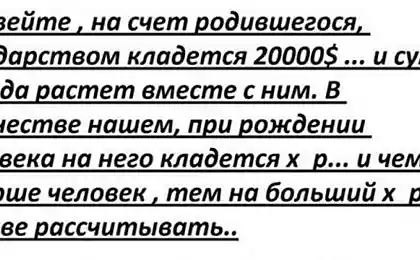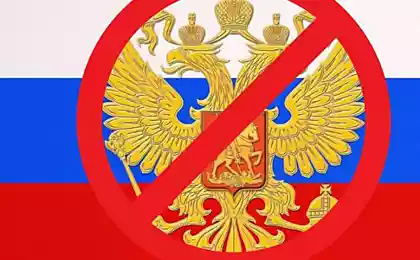186
7 Reasons for Russian Unsmiling
The view that Russians are an exceptionally unsmiling people is widespread among foreigners. The famous linguist Joseph Sternin very interestingly explains the reasons for this feature of the Russian mentality in one of his articles, excerpts from which are given below.
1. Smile in Russian communication is not a signal of politeness. Western smiles during greetings mean pure politeness. The more a person smiles, the more friendliness they want to show to their partner. A constant polite smile is called a “duty smile” by Russians and is considered a bad sign of a person, a manifestation of his insincerity, secrecy, unwillingness to detect true feelings. A Russian smile is a sign of personal sympathy, not politeness.
2. Russians don't smile at strangers. Smile in Russian communication is addressed mainly to friends. That’s why saleswomen don’t smile at customers—they don’t know them. If the buyer knows the seller, she will smile at him!
3. It is unusual for Russians to smile back. If a Russian sees a stranger smiling at him/her, he/she will undoubtedly look for the reason for the fun. Maybe something in his/her clothes or hairstyle made this guy have so much fun.
4. For a Russian to smile, he must have a good reason, obvious to others. This gives a person the right to smile from the point of view of others. In Russian, there is a unique proverb that is not found in other languages: “Laughter without a reason is a sign of a fool.”
5. The unsmilingness of the Russian person (it is the unsmilingness, not the gloom - Russians are mostly cheerful, cheerful and witty) is supported by Russian folklore, where we find a lot of sayings and proverbs "against" laughter and jokes. From the dictionary of Vladimir Dahl “Proverbs of the Russian people”: – The joke does not bring good. - And laughter is sinful. - And laughter and sin. - Other laughs are crying. - There is no truth in jokes. - A joke won't do good.
6. Russians do not smile in the performance of official duties, when performing any serious business. Customs officers at airports, for example, never smile because they are busy with serious business. This feature of the Russian smile is unique.
7. Russian smile is intended to be only sincere, it is considered as a sincere expression of good mood or disposition towards the interlocutor.
So, if you smiled a foreigner – it does not mean anything, he was taught to smile everyone, and if a Russian smiled, it is only because he really wanted to.
Source: koffboy.com/
1. Smile in Russian communication is not a signal of politeness. Western smiles during greetings mean pure politeness. The more a person smiles, the more friendliness they want to show to their partner. A constant polite smile is called a “duty smile” by Russians and is considered a bad sign of a person, a manifestation of his insincerity, secrecy, unwillingness to detect true feelings. A Russian smile is a sign of personal sympathy, not politeness.
2. Russians don't smile at strangers. Smile in Russian communication is addressed mainly to friends. That’s why saleswomen don’t smile at customers—they don’t know them. If the buyer knows the seller, she will smile at him!
3. It is unusual for Russians to smile back. If a Russian sees a stranger smiling at him/her, he/she will undoubtedly look for the reason for the fun. Maybe something in his/her clothes or hairstyle made this guy have so much fun.
4. For a Russian to smile, he must have a good reason, obvious to others. This gives a person the right to smile from the point of view of others. In Russian, there is a unique proverb that is not found in other languages: “Laughter without a reason is a sign of a fool.”
5. The unsmilingness of the Russian person (it is the unsmilingness, not the gloom - Russians are mostly cheerful, cheerful and witty) is supported by Russian folklore, where we find a lot of sayings and proverbs "against" laughter and jokes. From the dictionary of Vladimir Dahl “Proverbs of the Russian people”: – The joke does not bring good. - And laughter is sinful. - And laughter and sin. - Other laughs are crying. - There is no truth in jokes. - A joke won't do good.
6. Russians do not smile in the performance of official duties, when performing any serious business. Customs officers at airports, for example, never smile because they are busy with serious business. This feature of the Russian smile is unique.
7. Russian smile is intended to be only sincere, it is considered as a sincere expression of good mood or disposition towards the interlocutor.
So, if you smiled a foreigner – it does not mean anything, he was taught to smile everyone, and if a Russian smiled, it is only because he really wanted to.
Source: koffboy.com/
Scientists have created biomatrica able to generate energy from sweat
Detoxification— to get rid of all the excess























